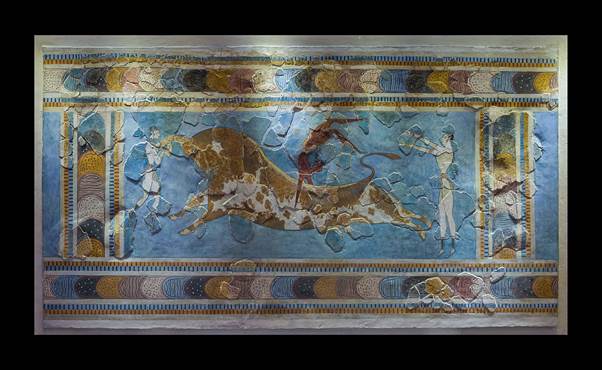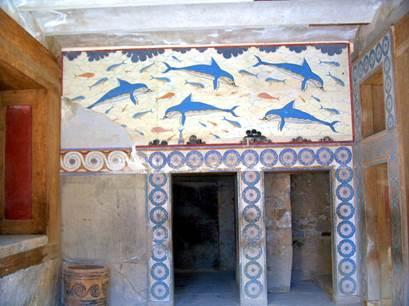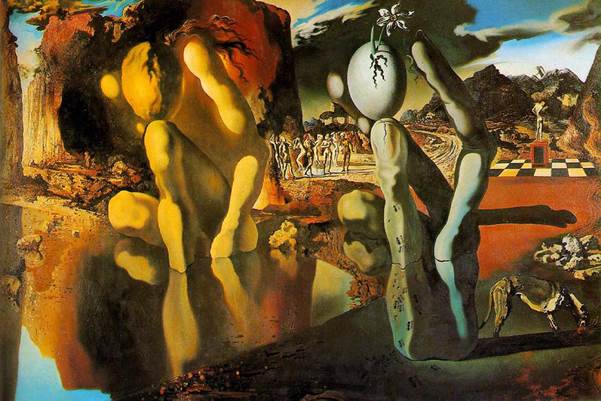WILD HORSES
”The money.. God help us if that’s all it is”
.. muses Conagher, who knows no other way than to “work for the brand.” He tracks the rustlers, is caught in a storm, finds himself outside widow Teal’s cabin/corral, and the rest was history.
This is a theme of countless Westerns – the dollar I mean. I guess that’s true, but the insane madness of today’s digital economies bears no relation to a healthy respect for the dollar. Hell, one needs one’s provisions, saddle-sore and hungry, thirsty too goddammit. This argument came into an issue of American Flagg! Chaykin’s line in #4 was that
“The American spirit – the honest, open-handed force of solidarity – has been castrated, By the banks.. by big business.. by slimy fat cats who use patriotism like a tart uses cheap perfume..” (Plexus Ranger Flagg)
Reviewer R Fiore took issue with this, saying that
A more sophisticated observer might have seen that the bankers, fat cats et al..are just the most successful versions of the hustlers that appear at all levels of American society, or that the old solidarity had more to do with the peculiar tendency of Americans to identify more with their bosses than each other. (TCJ #86, 1983, page 36)
..And the next thing you know you have Ayn Rand, a bright, clean orderly Metropolis (not the film). No, there is a basic cultural distinction between rugged individualism of the West, and Randian rational individualism. Steve Ditko is well-known for his Randian comics (Mr A); my case against him is that Dr Strange is a much better comic!
Rand has no mythos, so you have to wonder what is it you’re building these mega-buildings for (The Fountainhead). What is inspiring them? Is it just the thrill of achievement? That is the same motive of the sexless, dreamless Cyclan in EC Tubb’s Dumarest saga (CH 1).
So, any dream cycle, any story cycle or song cycle comes out of Dionysian urges; the romantic urge to procreate, the urge to voyage, adventure.. You’re in the world of style and content and not the one of rational fact. This is the real world since it is not completely real. I don’t suppose that sort of argument makes sense to Randians, so they can trot off to Silicon Valley. “Someone’s got to sleep with the machines” (Mountain Song, Paul Kantner). They may even end up in Joe’s Garage (Zappa).
Of course, in future they’re not going to be doing much trotting; Quicksilver Messenger Service will not be needed in the days of drone-delivery service. That would be so in a future of fact, not so surely in a future of style and content. This future (see Outtake 1) is a revival, even a return to origins in REH’s sense. The past becomes your future, and it becomes clear the facts you thought were cast-iron are just illusions.
I’m not going into all that here (It’s an Outtake, remember?) What will become apparent is that there is a quality of balance, a quality of line, that is not factual. It’s very difficult to argue that case until the day comes. Why can’t we just accept the bright promise of same-day-delivery and Apple watches? Hell, they even have Hermes leather bands! Yeah, but see above on Ayn Rand; what is your motive, your mythos, your urge? It can’t just be for the thrill of achievement. In the Apple ecosystem – or Amazon or Google – there is no eco-culture. There is style without content. Content is the Apollonian vision, the Dionysian urge, the balance between the two. Then you can have true style, which is to say stylishness with melancholy, not empty glitter.
So there are two alternate futures. One will give you empty style and a surfeit of facts but with no psychological strength or force for believing in it. Psychology is content, inner urge, and it is responsive to meta-imagery. This is what you find in an eco-culture. It’s true to say you have first to find some reason for doing things, such as riding horses, but the same goes for anything. You don’t need an Apple watch, you could instead choose to get a piebald. They cost money to stable, right? So the answer is to establish an eco-culture where horses exist. Wild horses. That costs nothing, it’s a cultural thing.
If that is an alternate future it doesn’t mean you can’t wear an Apple watch. What it means is that culture is a product of content and style and not the peddling of empty facts. That means revivalism and going back to the psychological roots of Greek drama. I’m a bit of a fan of Mary Renault’s stories of Minos and Theseus, and you might say that’s a lot of old bull. The culture of Crete revolved round bull-dancing, sexual charisma, a lot of gaiety or bloody death.

Fresco at Knossos
You could think of it as a deadly game; walking the tightrope of the competitive arena. Today we live in a competitive world, but there’s one difference. The competition of Knossos was a balancing act; trained dancers would balance on the backs of bulls and vault off. There are pictures of this so it happened (remember Schliemann’s Troy?) There is no reason for this culture except the worship of bulls. In one episode, Renault has the bull-catchers use a cow as a decoy, then “let him have his way” so he wouldn’t become evil tempered.
So, there’s a complete unseriousness at the heart of this culture (it is Minoan, after all). It’s gay, frolicking but also deadly and melancholic. That covers a lot of the territory apart, that is, from facts. There is a sense of style and strength there, and the psychology of worship (content).

Fresco at Knossos
A culture of rational seriousness cannot fathom that because it becomes obsessed by empty facts. The figures of the economy. All that is pointless without the strength of an eco-culture that gives your psychology somewhere to go. We live in the age of Narcissus.

Metamorphosis of Narcissus, Salvador Dali, 1937
With all that in mind, the wide open spaces are not serious, but they are essential. They are essential to unseriousness, to a robust psychology where the dominion of fact has not yet squashed resistance. Those who value the wide open culture of America do not build walls through deserts and probably would be best not to be real estate merchants.
Old films quite often have this quality of unseriousness. Grace Slick cites Betty Grable in The Beautiful Blonde of Bashful Bend. These 50s heroines moulded the young Slick (then Wing), and
What nine-year old Grace saw was a woman behaving in a primarily offensive, often masculine way and producing slapstick comedy as a result.. Significantly, she takes it all in hers stride with no whining or lobbying against sexist attitudes. She just tackles one problem at a time, always with a sense of humour, always self-possessed, always unruffled. (Somebody To Love? page 5,6)
So, Western heroines were not serious,
They took it all on without viewing “it” as something that needed a great deal of support to handle. (page 7)
Seriousness is having a heavy dose of facts but it’s not what you found in the West. Actually, that film also has an Indian woman character who handles the sleights of the smalltown with a good dose of irony. There is a light touch there that lets people be what they are and just get on with it. Life in its “serious” guise is more like death, to be frank, because you can no longer be yourself.
To quote Avril Lavigne’s lyric, it’s “Complicated” because “they” want it that way. Who are “they?” Maybe it’s the Martian overlords of Carpenter’s They Live! It could be “facts”. It doesn’t matter. The wide open spaces are out there where the buffalo are headed. It’s dangerous, moody, gritty and filthy (and that’s just Avril!)
THINGS I’LL NEVER SAY IN BUFFALO
TAGS CH 9
The Big Pretence, Wonder Woman’s lasso of truth, Apple’s Cupertino mothership blows up, light-hearted big-hearted musicals, prairie gold-dust







